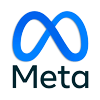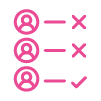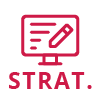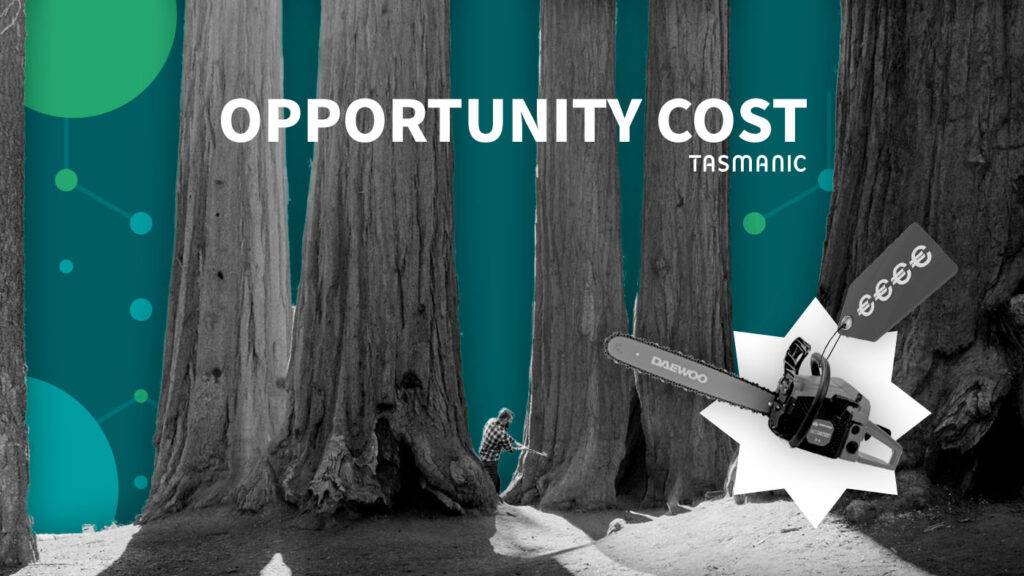
Last updated January 19, 2024
What is keyword research?
A keyword research is a technique in which you discover which terms your target audience uses in search engines. It provides insight into search behavior, the search terms used and helps optimize your website. This results in better online visibility (higher rankings) and more website visitors.
Why conduct a keyword research study?
Conducting a keyword research will give you insight into the search terms your target audience is searching for. You can then incorporate these search terms into your website content or search campaigns. This will increase the chance that your website will rank for the search queries of your potential customers and you can run more effective and efficient search campaigns. Important here is that you don't overdo how often you name the keywords. This is also known as "keyword stuffing" and causes a negative effect on your online findability.
How do you do keyword research?
There are a number of ways you can find keywords for your keyword research without using paid tools:
A good place to start is to brainstorm. For this, you can easily open an Excel document or Google spreadsheet and start typing. Think of topics that fit your business. For example, for a clothing store, you could write down topics such as sweater, shoes, pants, dress, socks and t-shirt right away.
If you are not using a keyword research tool, you could Google on these topics. Google will then quickly give you suggestions to expand your search further. Use these variations to gather search terms. In addition, Google also gives searches related to your search once you hit enter. You can use these for your keyword research as well.
In addition, you can look at what your competitors are doing. Search on your topics and click around competitors' websites. See what they write a lot about and what's in the footer.
You can also use Google's keyword planner. Although this is meant for paid advertising, you can use it to get inspiration on which keywords are interesting for your website.
Finally, you can also use Google Search Console. This is a free service from Google where you can see what keywords your website is being found on and how many impressions and clicks you are getting per keyword. Take advantage of these keywords to optimize your website's content.
Keyword research tools
Above, we explained how to find keywords without using paid tools. However, there are some very valuable keyword research tools that are worthwhile if you want to take the next step with your website.
At Tasmanic, we use Ahrefs. Ahrefs allows you to analyze the content, link building (backlinks) and rankings of your website and those of competitors. In it you can find extensive information about domain values, link values and searcher patterns.
In addition, we also use Semrush. Semrush is an online marketing tool that can help you with your keyword research. Among other things, you can analyze your organic traffic, link building (backlinks), search topic research and see keyword gaps with competitors.
Important considerations when choosing keywords
Selecting keywords or search queries that produce the best results is more complex than you might think; therefore, thorough keyword research is a must.
To arrive at reliable results, you need to consider several questions:
Research keywords first, then develop a website
During a keyword research, the search intent of your ideal website visitor is determined. Someone may be looking for information only, typing in a search question to go directly to a particular website or orienting themselves towards a (future) purchase. It's up to you which "searcher" you want to be found by. Do you want to share knowledge and gain leads through a newsletter, or do you want to generate website visitors who immediately fill their shopping cart? It is important to determine the search intent of your ideal website visitor, not only to ensure that you can be found, but also to ensure that you are found by valuable website visitors.
Interpreting data, such as search volumes and scores
To make the best use of the data generated by keyword research tools, the data must be interpreted correctly; there is no one-size-fits-all manual for that. Every company, customer and search query is unique. Therefore, the interpretation of data depends on several factors. During a keyword research, the various factors are considered to arrive at the right formula for success. A few examples:
- The search volume of a particular term is high. This does not mean that this term will produce the best results. Competition is high, so achieving a good position with this keyword can be challenging.
- The search volume is not as high. This may actually be a sign that there is relatively much to gain with this keyword combination, because the competition focuses on other terms. The people who do search for these terms will land on your page faster.
- Specific keyword combinations, whose numbers and scores don't necessarily skyrocket, can actually be the ideal connecting link between your potential clients and the unique service you offer. Think "unique wedding venue" vs. "unique wedding venue with lodging.
- To get the highest ROI from your Ads campaign, bidding on the right terms is crucial. There needs to be a good trade-off between cost and potential return, in order to invest in the - for you - most lucrative terms.
Another important point to consider, when interpreting data, is the possible motivation of keyword research tools behind a particular score. And what this score says about the usefulness of the particular keyword within organic SEO and Ads. For example, one of the most commonly used keyword research tools is Google keyword planner. However, Google likes to see the Click Through Rate of ads skyrocket; that's how they make money. Keywords that better match the needs of 'customers' at a further stage of their 'journey' - and who are ready to buy - are therefore preferred. This, while other keywords, whose high scores remain off, can be put to good use within organic SEO and lead generation, which in turn can be hugely valuable for a future and loyal customer base.
The distinction between SEO and Ads
To achieve the best results, a high conversion rate, keyword research distinguishes between keywords for SEO and Ads. Whereas long-tail keywords or search queries can generate valuable leads through blogs or website content, commercial keyword combinations will yield better results in Ads. Two examples:
- Someone is planning to buy a house and is orienting on a new interior design. Or perhaps an interior designer, looking for new trends to present to his/her clients. Both may search on "types of lighting," landing on an interesting page where they can find inspiration. With relevant website content or an inspiring blog, this search can be answered. The result? A valuable lead who may develop as a loyal customer.
- Someone who is already decorating a home is more likely to search on "living room lighting"; a more concrete and commercial keyword combination. This combination may be more suitable for Ads, directing the potential buyer - someone at a further stage of the customer journey - directly to an online store or relevant landing page.
The popularity of different terms can be high, but the question is with which "tool" this popularity is best utilized. During a keyword research, it is determined which keywords are best suited for Ads and which for SEO.
The search intent of your ideal visitor
A keyword research determines which keywords provide the strongest foundation for your website, from there a clear and user-friendly navigation and website structure is created. Other solid building blocks are selected and strategic pillars are put in place. After determining the most important keywords, a solid website can be developed - one that stands like a house. The keyword research can point to desired features or certain call to actions. In addition, the keywords provide direct direction for website content, meta titles and various technical aspects within the website.
Lay the foundation of your online success; build a solid website, be optimally findable and aim for the highest conversion rate. Start with a keyword research.
Is your company missing opportunities?
Our pay is based on your results.

















 Team
Team FAQ
FAQ Prices
Prices Vacancies
Vacancies Contact
Contact Marketing
Marketing SEO
SEO SEA
SEA Strategy
Strategy Sales
Sales Optimization
Optimization AWR
AWR Ahrefs
Ahrefs Channable
Channable ContentKing
ContentKing Leadinfo
Leadinfo Optmyzr
Optmyzr Qooqie
Qooqie Hubspot
Hubspot Semrush
Semrush




